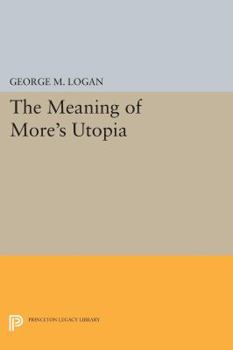The Meaning of More's Utopia
Select Format
Select Condition 
Book Overview
Examining its relation to ancient and Renaissance political thought, George M. Logan sees Thomas More's Utopia whole, in all its ironic complexity. He finds that the book is not primarily a prescriptive work that restates the ideals of Christian humanism or warns against radical idealism, but an exploration of a particular method of political study and the implications of that method for normative theory.
Format:Paperback
Language:English
ISBN:0691613710
ISBN13:9780691613710
Release Date:July 2014
Publisher:Princeton University Press
Length:314 Pages
Weight:0.97 lbs.
Dimensions:0.7" x 6.1" x 9.2"
Customer Reviews
0 rating





